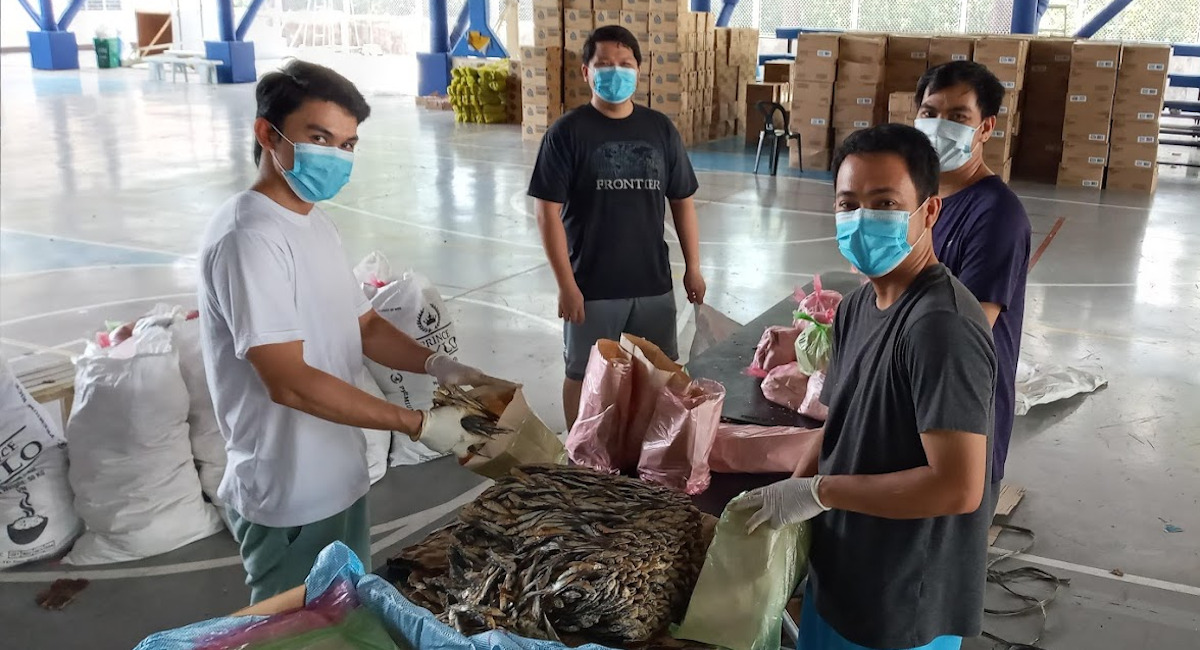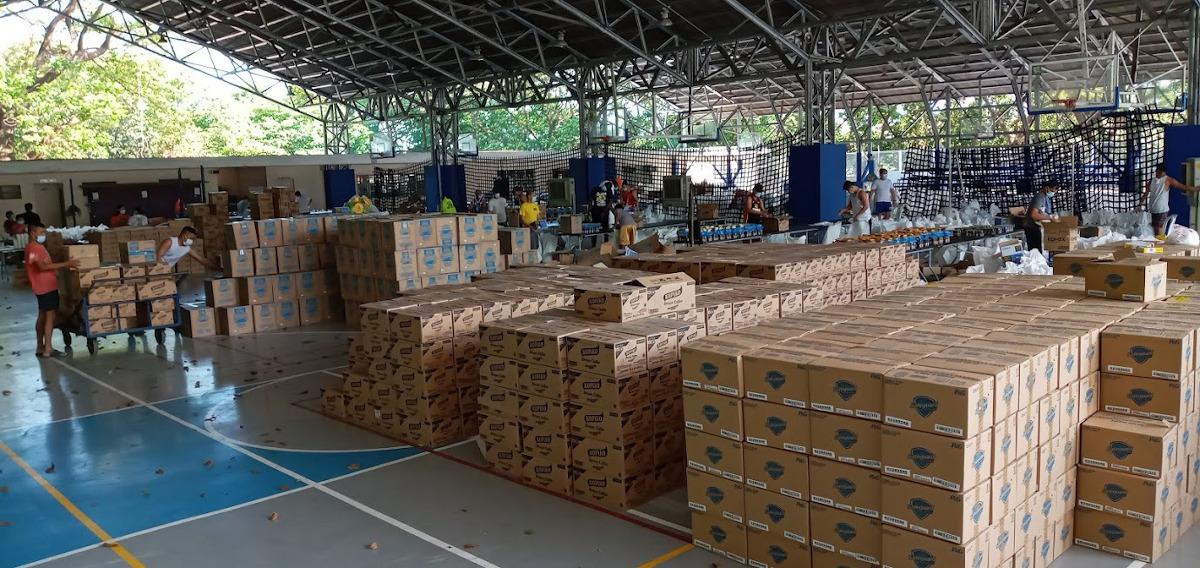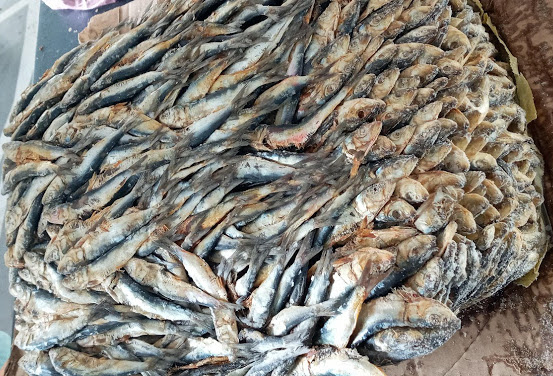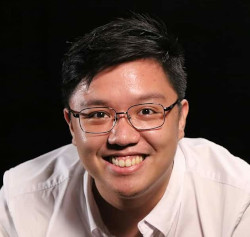 Whenever crises or disasters strike, it is inevitable for many people to ask, “Where is God in all this?” Probably the question arises from a longing to find Him in the midst of darkness and uncertainty, or simply to express their scepticism. Regardless of the intention, I think it is perfectly human to look for God during this time of Covid-19 and enhanced community quarantine. It is normal to look for meaning and purpose during these difficult times. But, the question begs an answer. I will not go into the philosophical or the theological explanation, but I want to share my own experience of finding God in a packing station, in an assembly line sliding half a kilo of smelly dried fish into small plastic bags, and making sure the five packs of instant noodles are in the family pack that would end up in the household of a poor family. I want to share how I found God, and continue to meet Him whenever I volunteer in the packing station.
Whenever crises or disasters strike, it is inevitable for many people to ask, “Where is God in all this?” Probably the question arises from a longing to find Him in the midst of darkness and uncertainty, or simply to express their scepticism. Regardless of the intention, I think it is perfectly human to look for God during this time of Covid-19 and enhanced community quarantine. It is normal to look for meaning and purpose during these difficult times. But, the question begs an answer. I will not go into the philosophical or the theological explanation, but I want to share my own experience of finding God in a packing station, in an assembly line sliding half a kilo of smelly dried fish into small plastic bags, and making sure the five packs of instant noodles are in the family pack that would end up in the household of a poor family. I want to share how I found God, and continue to meet Him whenever I volunteer in the packing station.
Since the early days of the quarantine, the Ateneo de Manila University and the Society of Jesus have been organising a relief operation to aid poor families who have lost their regular source of income. I decided to volunteer regularly to, at least, make the most of my time and help out in a little way. However, I am not alone. Looking around I see many volunteers, sweaty and tired from lifting boxes of instant noodles and canned goods, walking around the packing station. We have the community from the East Asian Pastoral Institute (EAPI), the Jesuits from the various Jesuit communities on campus: Loyola House of Studies, Jesuit Residence, and Arrupe International Residence, not to mention the platoon of seminarians from San Jose Seminary (fondly called “Josefinos”) whose presence, number, and energy would surely remind you that volunteers opt to spend hours volunteering not just to pass the time but to enjoy themselves and sincerely share their blessings. Now more than ever, as one seminarian told me, the vocation of a religious and a priest is to help the most vulnerable, the most affected, the most neglected in society. “This is our vocation now: to lift heavy boxes and sacks of rice,” said one Josefino. “Besides, we need to lose some weight!”
 I was chatting with a religious sister from EAPI, who was a foreigner, and our conversation eventually turned to the different ways our governments are handling the coronavirus. In the end, she said, she cannot expect much from the government, but she has to do something herself – not only for her countrymen, not only for her fellow Catholics and Christians, not only for the good people. “We are doing this because we share a common humanity. Their hunger is no different from our hunger. We are able to eat every day, but some of these families are not even sure where to get their next meal. That cannot be the case. We need to do something; even just a little.” She reminded me of what the Easter season is all about.
I was chatting with a religious sister from EAPI, who was a foreigner, and our conversation eventually turned to the different ways our governments are handling the coronavirus. In the end, she said, she cannot expect much from the government, but she has to do something herself – not only for her countrymen, not only for her fellow Catholics and Christians, not only for the good people. “We are doing this because we share a common humanity. Their hunger is no different from our hunger. We are able to eat every day, but some of these families are not even sure where to get their next meal. That cannot be the case. We need to do something; even just a little.” She reminded me of what the Easter season is all about.
This is the time when we remember Our Lord Jesus Christ who rose victorious over death. During this dark night of Covid-19, when a lot of people are suffering from the disease, uncertainty, and fear, I see little sparks of hope that dispel the darkness of this night: dedicated people working in the hospitals caring for the sick putting their own health at risk, families and friends helping poor communities, scientists trying to unlock solutions to end this pandemic, and the faithful doing little things to make the situation a little bit better, a little bit brighter.
 These stories remind me that this night is not as dark as I thought it was. In the darkest of nights even the smallest flicker of light from a distant star makes a difference. Because of that, I am assured the Morning Star will rise. Night does not go on forever.
These stories remind me that this night is not as dark as I thought it was. In the darkest of nights even the smallest flicker of light from a distant star makes a difference. Because of that, I am assured the Morning Star will rise. Night does not go on forever.
So where did I find God while I was at the packing station? I found God in the people. People who try their best and sincerely to do something. People who have shown mercy to their poor brothers and sisters. Those who share what they receive. These are the people who reflect the light from the Lord during this dark period of our history. These are the people who remind me that hope always has a way of making herself known.
God is also with the families, awaiting help. He is with them who are struggling to make ends meet and make sense of all of this. God is with the security guards carrying the boxes of dried fish for repacking. He is with those who are driving the trucks that bring these goods to the communities. God is not hiding; we need only to look closely. Wherever there is love, hope, faith, and mercy, God is there. This shouldn’t at all be surprising for, as Pope Francis reminds us: “The name of God is Mercy.”
 Bien Cruz is a Filipino Jesuit scholastic from the Loyola House of Studies. He just finished his philosophical studies and is now awaiting his new assignment in Cagayan de Oro City. The boxes and boxes of relief goods have inspired him to come up with a math problem to reawaken our mathematical wizardry: If a box of dried fish weighing 25 kilos can make 50 family packs and the Jesuits purchased 34,000 kilos of dried fish, how many boxes and how many family packs can we make? Using those numbers, calculate the circumference of the sun. No, Google doesn’t have the answer.
Bien Cruz is a Filipino Jesuit scholastic from the Loyola House of Studies. He just finished his philosophical studies and is now awaiting his new assignment in Cagayan de Oro City. The boxes and boxes of relief goods have inspired him to come up with a math problem to reawaken our mathematical wizardry: If a box of dried fish weighing 25 kilos can make 50 family packs and the Jesuits purchased 34,000 kilos of dried fish, how many boxes and how many family packs can we make? Using those numbers, calculate the circumference of the sun. No, Google doesn’t have the answer.

